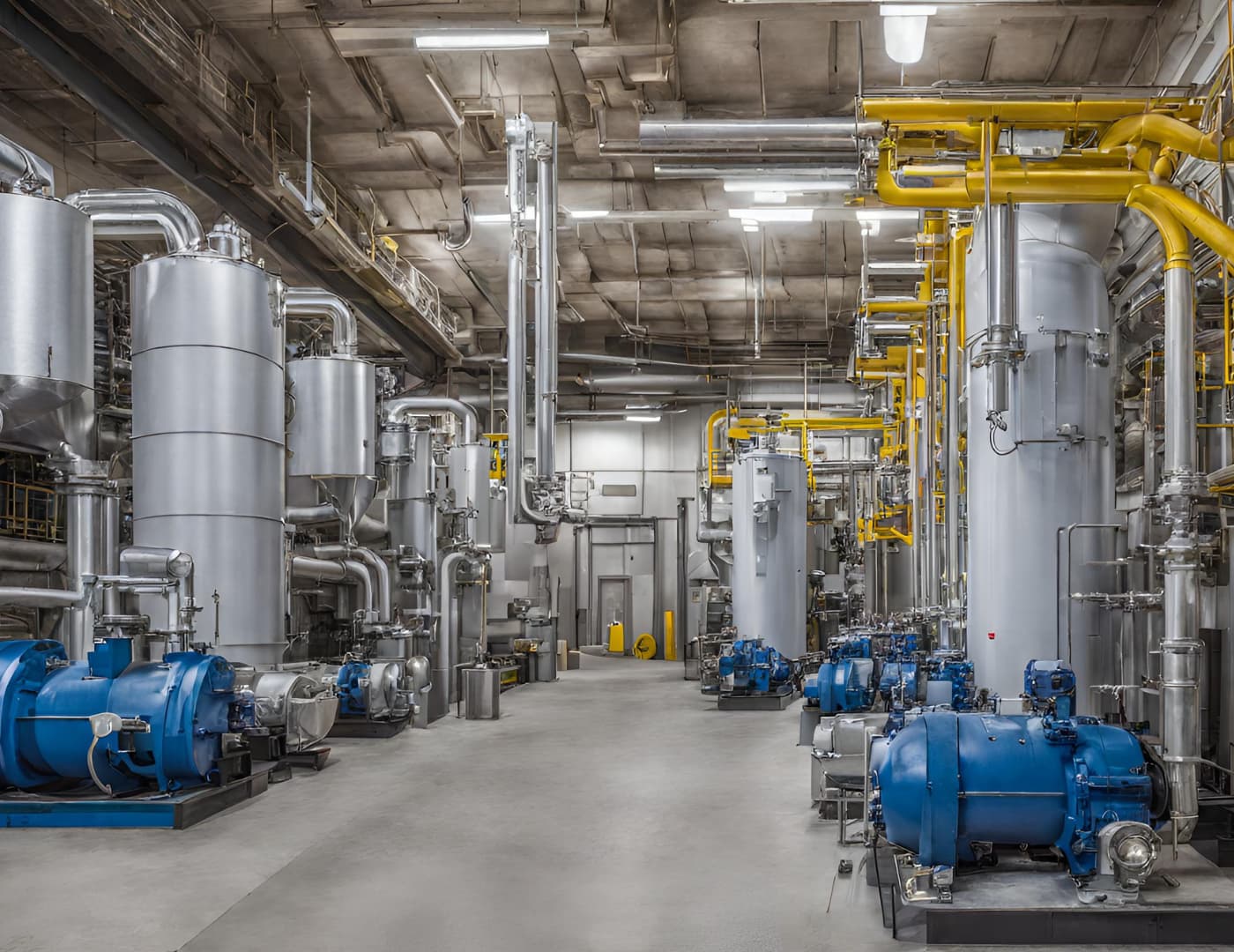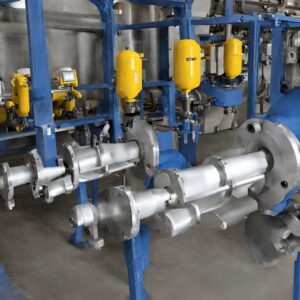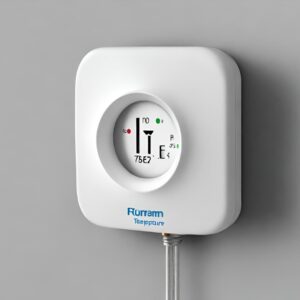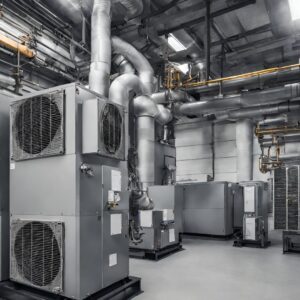In today’s world, energy efficiency and sustainability are paramount concerns across various industries. From manufacturing plants to water treatment facilities, the pressure to reduce energy consumption and minimize environmental impact is ever-increasing. This blog post explores how Hayward flow control valve actuators, often overlooked but essential components, are playing a crucial role in achieving these goals.
The Significance of Energy Efficiency
The significance of energy efficiency cannot be overstated. Global concerns over climate change, environmental sustainability, and the rising cost of energy have prompted industries and businesses to reevaluate their practices. Energy efficiency is no longer a mere option; it has become a strategic imperative. Companies across various sectors are realizing that embracing sustainable and energy-efficient solutions is not only beneficial for the environment but also essential for their competitiveness, resilience, and reputation.
The Role of Flow Control Valve Actuators
At the heart of fluid control systems lie flow control Honeywell valve actuators, the often unsung heroes responsible for regulating the flow of liquids or gases with precision and reliability. These indispensable components ensure that fluids move through pipelines and systems seamlessly, controlling the rate, direction, and quantity of flow. Without valve actuators, fluid control systems would be prone to inefficiencies, inaccuracies, and unreliability, leading to wasted resources and increased operational costs.
Valve actuators function by responding to control signals and adjusting the position of the valve accordingly. These control signals can be transmitted through various actuation methods, including pneumatic, electric, and hydraulic systems, each offering unique advantages and applications. The choice of actuation method depends on the specific application, the requirements of the system, and the desired level of energy efficiency.
Energy Efficiency in Fluid Control Systems
One of the primary drivers of energy consumption in fluid control systems is the actuation of valves. Traditional valve actuators, when inefficiently sized or operated, can consume substantial amounts of energy. This energy wastage translates into higher operational costs and a more significant environmental footprint. It also poses challenges for industries striving to meet sustainability targets and reduce their carbon footprint.
Inefficient valve actuators not only consume more energy but also generate excess heat during operation. This excess heat can result in additional energy losses in the form of cooling requirements, further exacerbating the inefficiency. In some cases, excessive energy consumption can even strain local power grids, leading to power quality issues and increased operational risks.
Types of Flow Control Valve Actuators
Flow control valve actuators come in various types, each offering a distinct set of advantages and applications. Understanding the differences between these actuators is essential for selecting the most suitable one for a given application and optimizing energy efficiency.
- Pneumatic Actuators: Pneumatic actuators operate by using compressed air to drive the valve. They are known for their reliability, responsiveness, and robust performance. Pneumatic actuators are often preferred in applications where rapid valve movement is required.
- Electric Actuators: Electric actuators, in contrast, use electrical energy to operate. They offer precise control and are recognized for their accuracy. Electric actuators excel in applications where precise positioning and fine control are essential. Moreover, they are highly energy-efficient, as they convert electrical energy directly into mechanical motion without the need for additional power to maintain valve positions.
- Hydraulic Actuators: Hydraulic actuators use pressurized hydraulic fluid to operate the valve. They are known for their high force output and are often employed in applications requiring substantial force. However, they may not be as energy-efficient as pneumatic or electric counterparts, making their selection dependent on specific force requirements.
The choice of valve actuator type should be driven by a careful assessment of the application’s needs, including force, speed, precision, and energy efficiency considerations.
Benefits of Energy-Efficient Actuators
Energy-efficient valve actuators offer a multitude of benefits that contribute to sustainability and cost-effectiveness:
- Reduced Energy Consumption: Energy-efficient valve actuators optimize the actuation process, significantly reducing energy consumption. This translates into tangible cost savings and a diminished environmental footprint, making it a win-win for businesses and the planet.
- Lower Operational Costs: Energy-efficient systems inherently result in cost-effectiveness. The energy savings realized through the use of these actuators lead to reduced operational expenses, ultimately improving a company’s financial performance.
- Extended Equipment Lifespan: Energy-efficient actuators are less prone to wear and tear, resulting in extended equipment lifespans. Fewer replacements mean reduced waste and contribute to sustainability by conserving resources.
- Lower Greenhouse Gas Emissions: Reduced energy consumption translates directly into lower greenhouse gas emissions. This aspect is crucial in helping organizations meet sustainability targets and reduce their overall carbon footprint.
Applications Across Industries
Energy-efficient valve actuators find applications across a spectrum of industries, each benefiting from improved sustainability, energy conservation, and operational efficiency. Here are some notable applications:
- Manufacturing Industry: In manufacturing, precision and energy efficiency are paramount. Valve actuators ensure that processes are meticulously controlled, leading to consistent product quality and reduced waste. These advantages contribute to both sustainability and cost-effectiveness in manufacturing operations.
- Water Treatment Plants: Water is a precious resource, and water treatment plants play a pivotal role in ensuring clean and safe water for communities. Valve actuators are instrumental in managing the flow of water and treatment chemicals efficiently. Their efficient control minimizes resource use, reduces waste, and helps lower the carbon footprint of water treatment facilities.
- HVAC Systems: Heating, ventilation, and air conditioning (HVAC) systems are ubiquitous in commercial and residential buildings. Energy-efficient valve actuators enable these systems to maintain ideal indoor conditions with minimal energy consumption. Smart HVAC systems, equipped with energy-efficient actuators, can adapt to changing conditions and occupancy, further enhancing energy savings and comfort.
Innovative Technologies and Solutions
The valve actuator landscape is continually evolving, driven by innovative technologies that aim to push the boundaries of energy efficiency and control. Two notable advancements in this space are:
- Smart Actuators: Smart valve actuators are equipped with sensors and advanced control algorithms that enable real-time adjustments based on environmental conditions and system requirements. For instance, in a building’s HVAC system, smart actuators can respond to temperature and occupancy data to optimize heating, cooling, and airflow. This dynamic control not only enhances comfort but also reduces energy consumption.
- IoT Integration: The Internet of Things (IoT) has begun to revolutionize valve actuation by providing real-time data on system performance and energy consumption. This data can be analyzed to identify inefficiencies and opportunities for improvement. Maintenance can be scheduled proactively based on the condition of the actuators, reducing downtime and optimizing energy use.
Conclusion
In conclusion, flow control valve actuators are the often-overlooked champions of energy efficiency and sustainability in various industries. These essential components play a pivotal role in regulating fluid flow, helping businesses reduce energy consumption, lower operational costs, and decrease their environmental footprint. As technology continues to advance, the future holds the promise of even more efficient and sustainable fluid control systems, all thanks to the often-underappreciated valve actuators.




